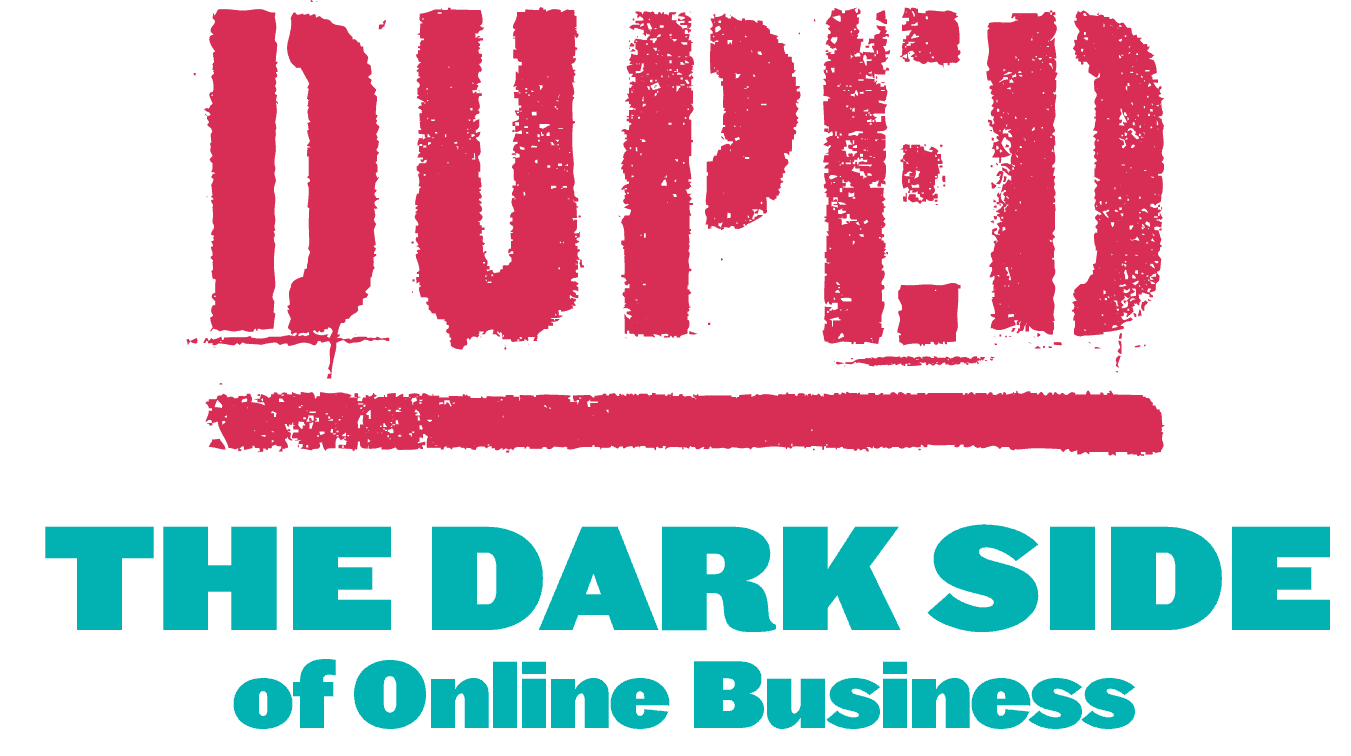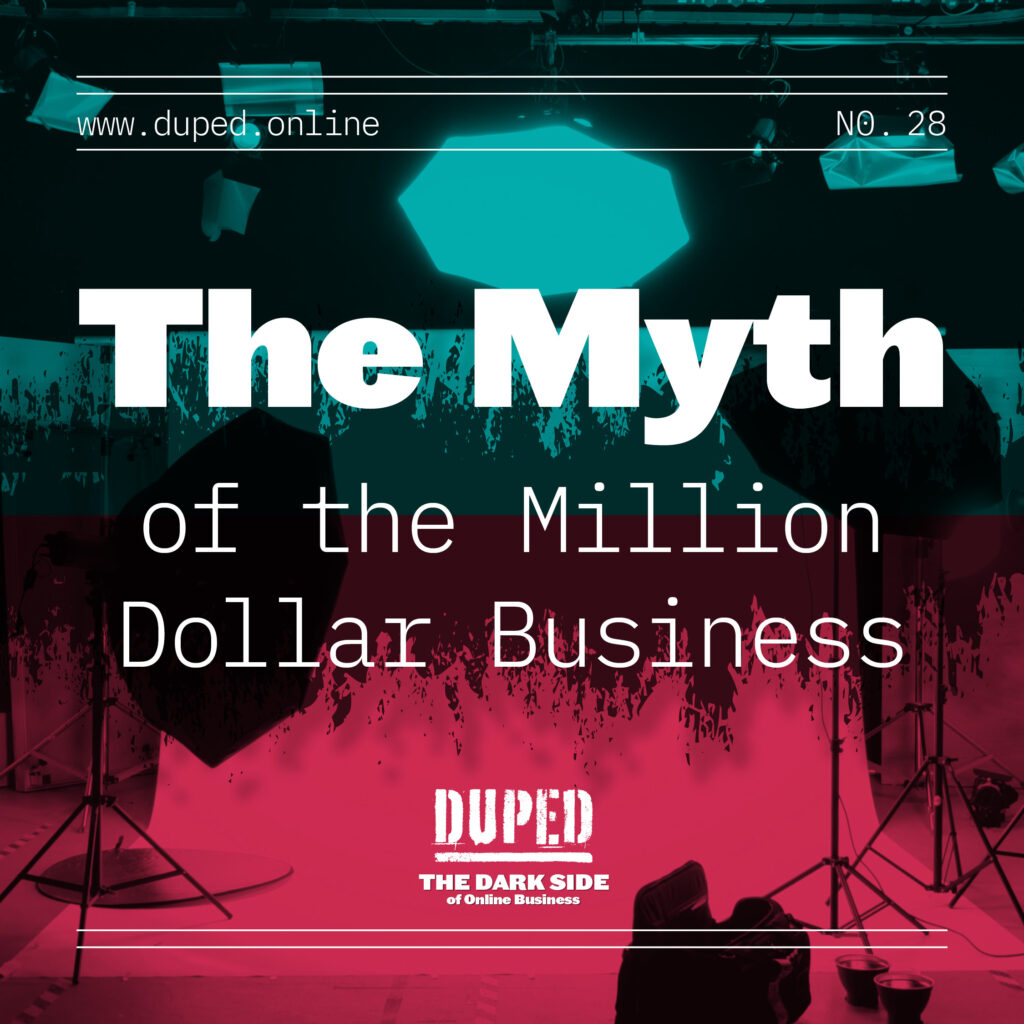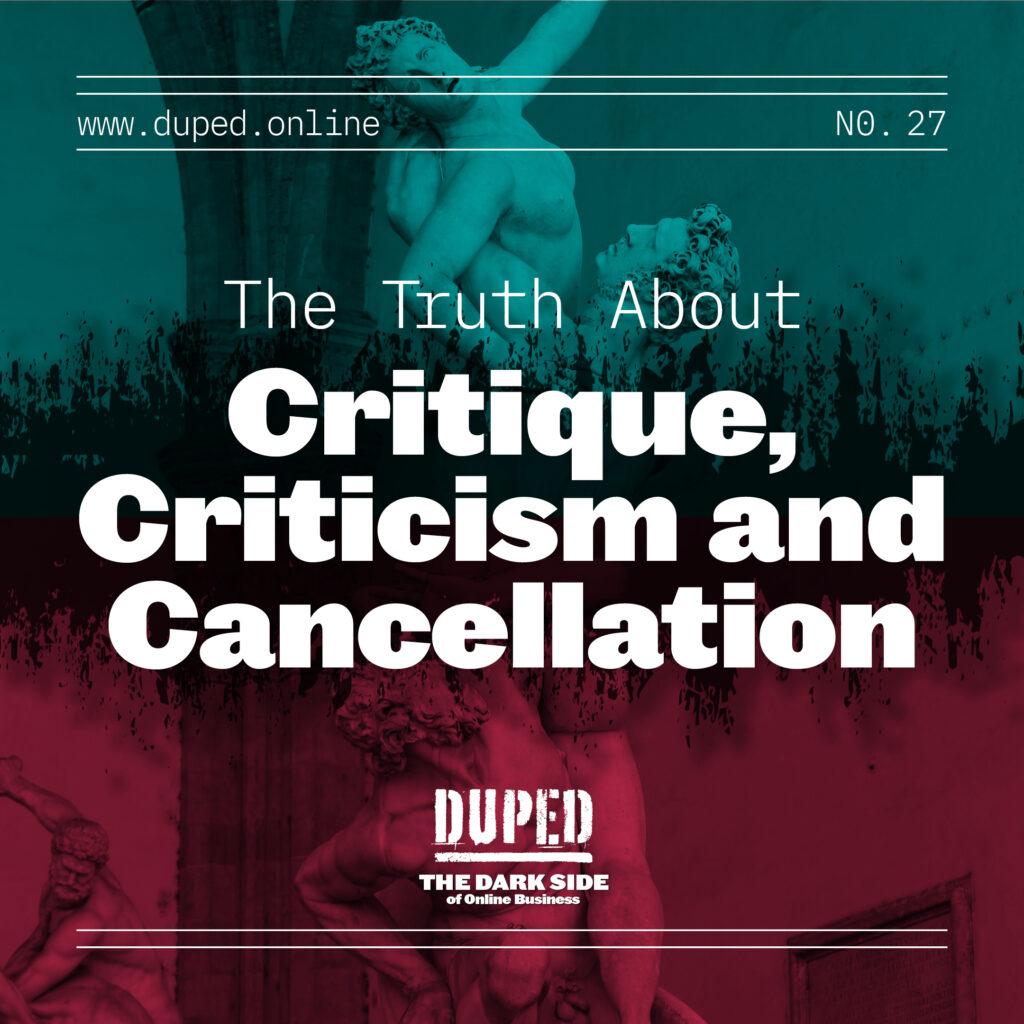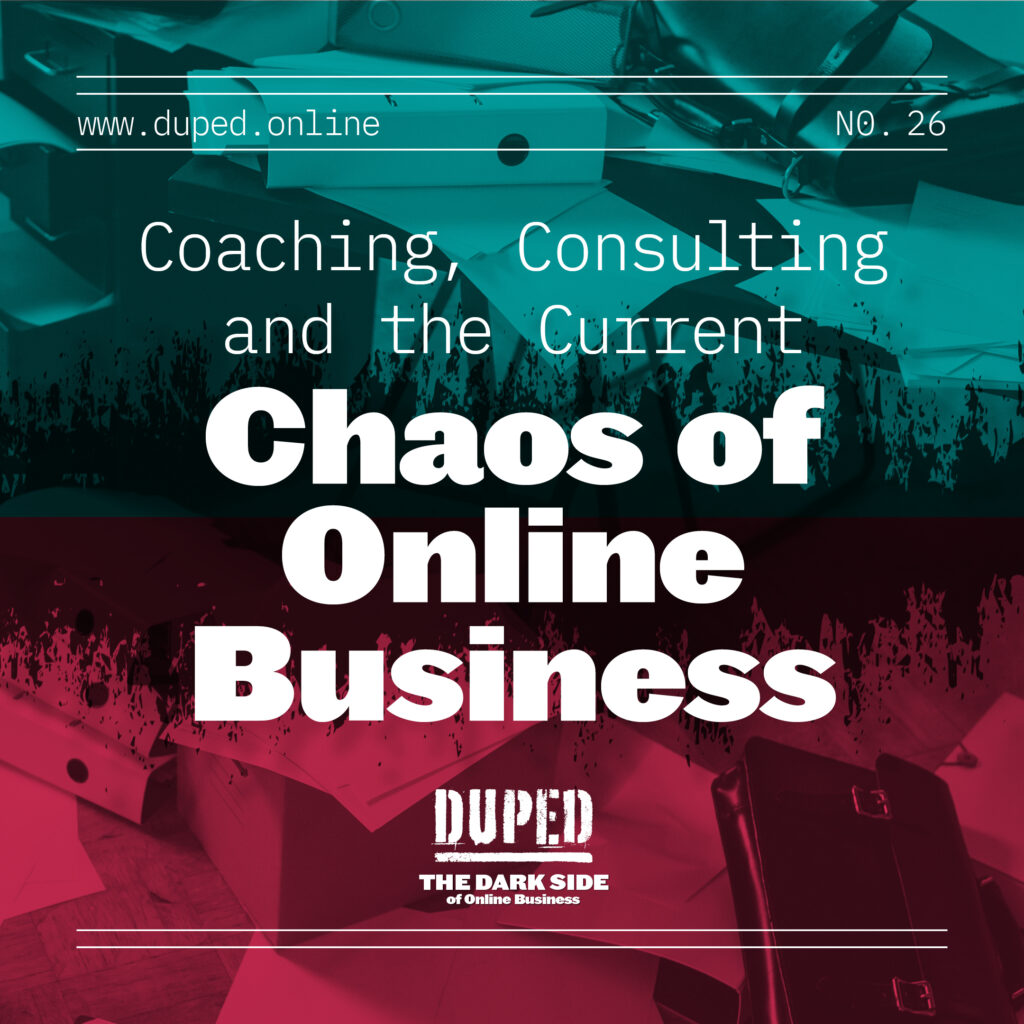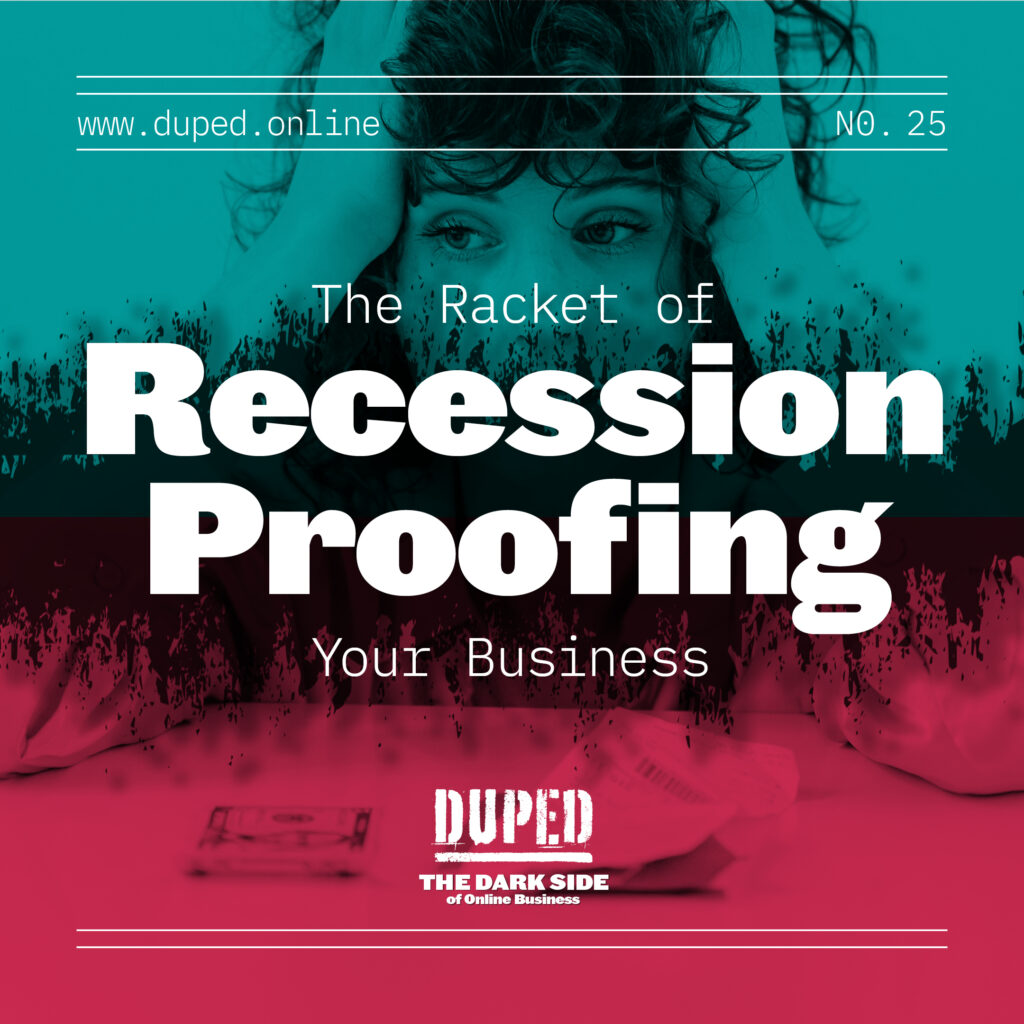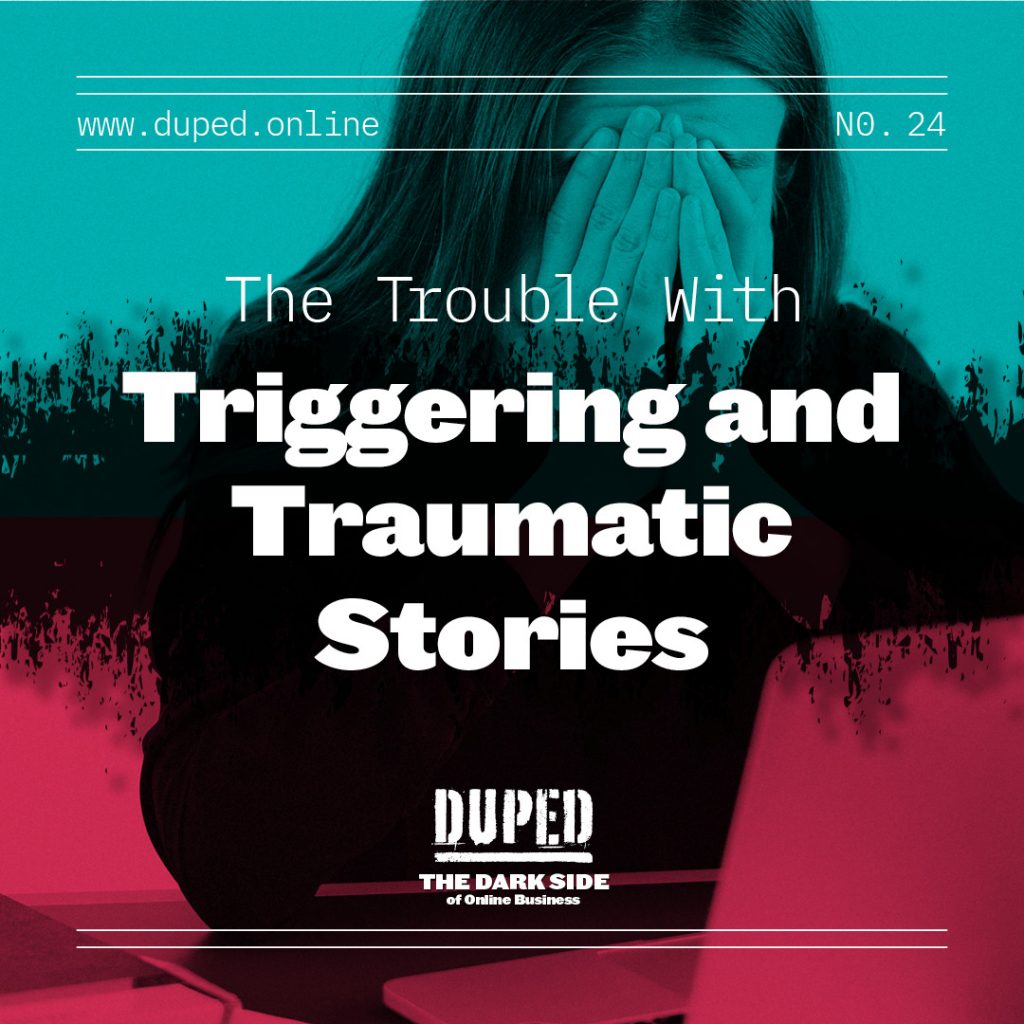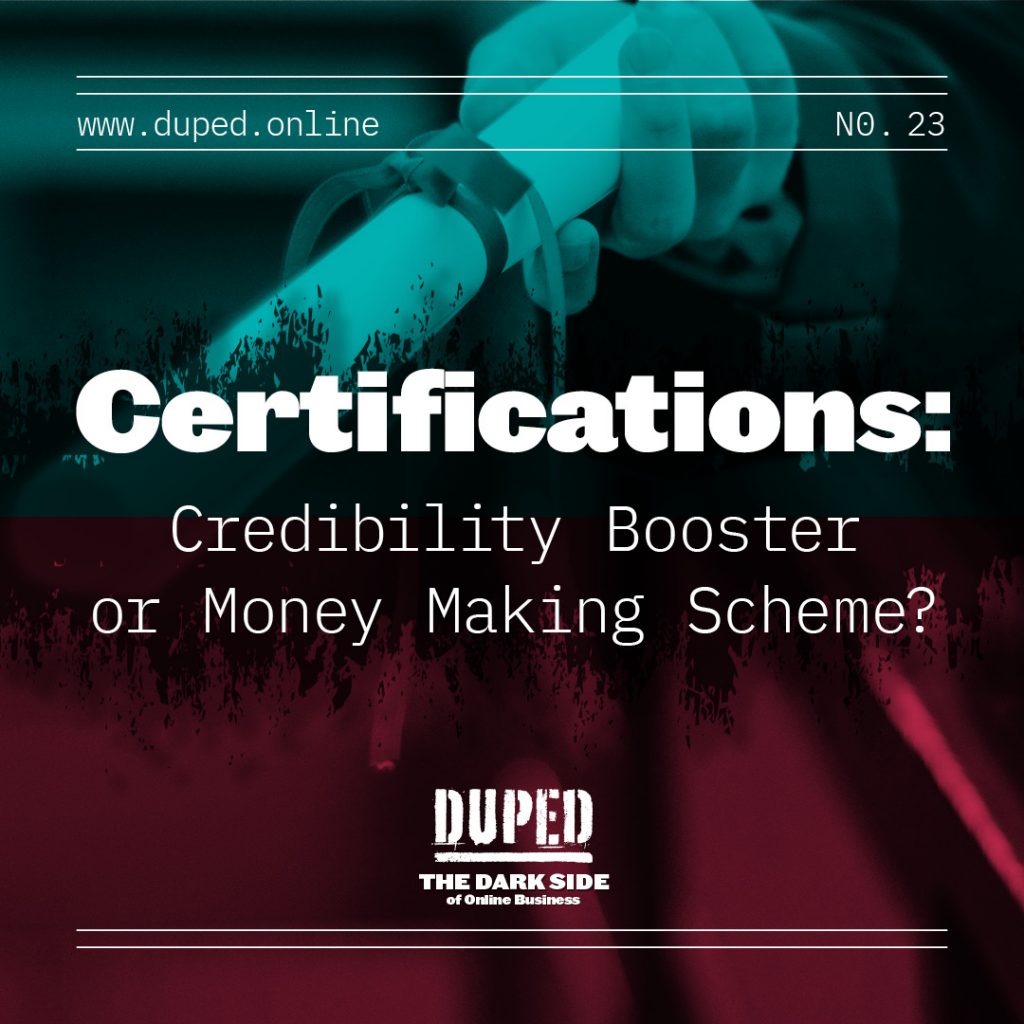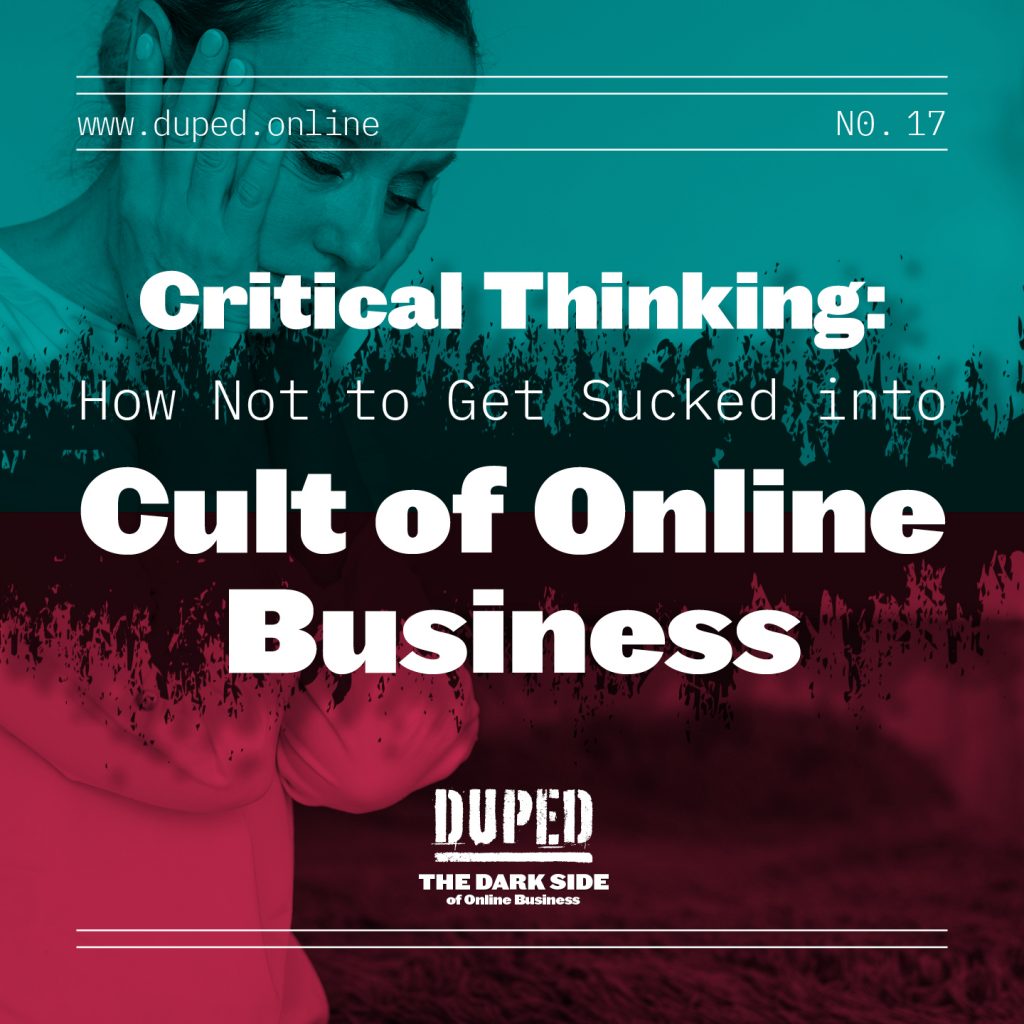
Critical Thinking: How Not to Get Sucked into the Cult of Online Business
The key to not getting Duped in online business is slowing down and thinking critically about your purchase so that you make an informed decision. However, the online business world is rigged to do everything to shut down critical thinking so you can be swindled by social triggers.
In the season finale of Duped, we’re talking about how to cultivate and apply critical thinking before you hit the buy now button. Let’s do it!

As a college debater, critical thinking was baked into everything Michelle did. The debaters had to be fast on their feet in order to critique and analyze an argument in real-time. Clearly, Michelle was lucky because as she was doing research for this episode she came across many articles talking about the crisis of critical thinking.
In a Psychology Today article, The Emerging Crisis in Critical thinking, Dr. Stepen Camarata, wrote “In essence, these children—and their developing brains—have been “wired” from an early age to memorize and retrieve “facts” on-demand but not to think or reason.”
Schools do not teach how to critically think.
What is Critical Thinking?
This is the definition that comes from critical thinking.org:
“A statement by Michael Scriven & Richard Paul, presented at the 8th Annual International Conference on Critical Thinking and Education Reform, Summer 1987. Critical thinking is the intellectually disciplined process of actively and skillfully conceptualizing, applying, analyzing, synthesizing, and/or evaluating information gathered from, or generated by, observation, experience, reflection, reasoning, or communication, as a guide to belief and action.”
Phew! Critical thinking is a lot of work. Remember, Petty and Cacippio in their Elaboration Likelihood model state that in order to critically think – we have to be 1) Motivated to process information and 2) Able to process information.
It’s easy to shut down critical thinking. Our brains want to preserve energy.
We Want to Believe: How Confirmation Bias Impacts Our Ability to Make Decisions
One unconscious bias that gets in the way of critical thinking is confirmation bias. We want to believe!
According to the American Psychological association “Confirmation Bias is the tendency to look for information that supports, rather than rejects, one’s preconceptions, typically by interpreting evidence to confirm existing beliefs while rejecting or ignoring any conflicting data.”
When we are making investment decisions, we are more likely to give weight to views that support our beliefs. If we believe that a certain celeb entrepreneur is going to get us a result we seek out information that confirms that belief.
The takeaway is to realize your brain is programmed this way and when you see evidence that counters your belief don’t dismiss it – pay attention to it.
The High School Effect: Bias Toward Popularity
It’s easy to think that because someone has a huge following, sold thousands of courses, or has 10K subscribers, that what they’re selling is quality. Heck, there’s even an assumption that if you personally have a six or seven-figure business, what you sell is good.
We’re calling this the high school effect but in schools of logic, it’s known as the fallacy of the appeal to popularity aka Bandwagon fallacy. That just because something is popular it means it’s right or the best.
Michelle works with so many people who are experts, truly skilled at getting their client’s results, and are the best at what they do – but they don’t have a huge following. Their names are not the MOST recognizable in the industry
A few years ago, she talked down a friend who was thinking about doing a celebrity entrepreneurs course because everyone was signing up for it and it was everywhere. Michelle knew her business model was not aligned with what was being taught in the course.
When you see everyone talking about a certain course or program, tons of people buying and your feeling that pressure to jump on the bandwagon – stop as this is a sign for the need for critical thinking.
Evaluating Program Promises
A program promise is what you as the service provider, program leader or course creator can 100% promise to deliver on in your program.
This means that the outcome/deliverable is 100% in your control.
For example, the promise of the 3 Word Rebellion Messaging Intensive is to “powerfully communicate the value your business creates whether speaking to one person or a million people.”
Helping clients powerfully communicate is something Michelle knows that she can deliver on.
The issue is in Online Business many of the things that are promised in programs are nothing that the business owner can promise.
Here are a few examples:
- Design a thriving, sustainable business and a life you love.
- Exponentially increase your income and impact in your online business.
- Make your business dream a reality.
- Actionable advice that grows a thriving online business.
- Scale your business without burnout.
When you see headlines like this, it should be a signal to your brain to STOP and ask yourself two questions.
- Can they really deliver on that promise?
- What are you really creating in that program?
While a program might promise you a sustainable business and life you’ll love – what you’re really creating in that program is a membership website. We don’t think a membership can guarantee you’ll love your life.
Testimonials and Hasty Generalizations
Testimonials are used as a form of social proof that a program gets a specific result. In online business, testimonials usually come in the form of income claims.
It can be impressive to look at the testimonials, See all of the results or endorsements from other celebrity entrepreneurs, and think “Wow, this program is going to be the THING that catapults my business.”
Or you could be falling for the fallacy of hasty generalization which according to Wikipedia involves reaching an inductive generalization based on insufficient evidence —essentially making a rushed conclusion without considering all of the variables or enough evidence.
An example of this is when you see those stories of the oldest living man and find out that he smokes a pack a day and drinks whisky every day – you could conclude that smoking and drinking are the path to longevity. When really that person is an outlier and not the norm.
When you see 20 testimonials, it’s easy to think wow – great results but if a course had 1000s of participants – you’re only seeing the results of a limited set of data – and could be making a hasty generalization
We are not telling you not to use testimonials in your business. You do need to show people that your work is effective but as a buyer beware that you’re only seeing the tip of the iceberg of the participants who’ve been in a celebrity entrepreneurs program.
The Lightning Round of Critical Thinking
Here’s what you should remember about how to think critically in online business:
- Critical thinking is easy to shut down. Thinking carefully about decisions is a lot of work and takes a lot of energy. When you’re thinking about investing in a program, be sure you’re able to think critically about it.
- Don’t dismiss evidence counter to your beliefs. We want to believe. It’s far too easy to dismiss evidence that counteracts what you already think about a program. When you see arguments that counter your beliefs, slow down and pay attention.
- Popularity does not equate to quality. Just because everyone is doing a program or you see it everywhere, doesn’t mean that it’s good or gets results. Beware of the appeal to popularity.
- What’s actually being promised? Realize there are things like more money, more impact, more time freedom that no program can promise you. What are they really promising and what are you really getting?
- Beware of the hasty generalizations. Testimonials are persuasive and necessary but remember you’re only seeing a handful of people of all the people who purchased a program.
Links for this episode:
Join the

Patreon

for only $7/month and get a
monthly bonus episode,
behind-the-scenes content
and more.
